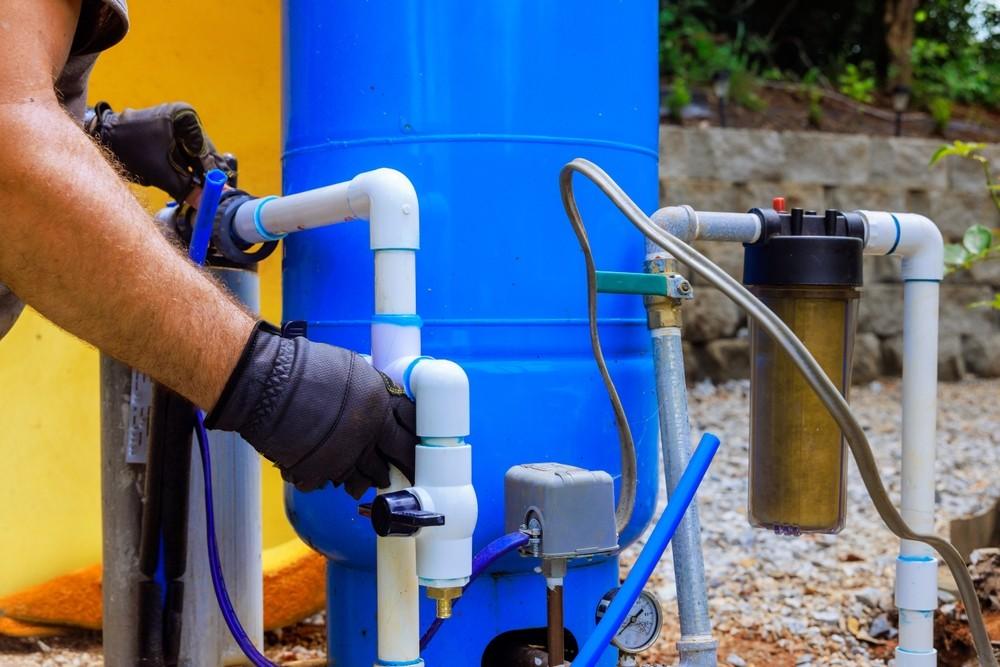Warning Signs Your Well Pump Might Be Failing (And What to Do About It)
If you rely on a private well in the Pacific Northwest, your well pump quietly powers every shower, laundry cycle, and glass of water. When the pump starts slipping, daily routines get stressful fast. The upside: most failures announce themselves first. If you learn the early clues and act quickly, you can avoid a no-water emergency and a costly rush repair.
Call Specialty Pump & Well today at (425) 487-0123 if you suspect your well pump is failing.

Why Well Pump Maintenance Matters for Pacific Northwest Homes
A healthy pump does more than keep taps flowing. Timely care preserves steady pressure, limits sediment from entering your lines, reduces wasted energy from over-cycling, and extends equipment life. Most importantly, it gives you confidence that clean water will be there when you need it, during busy mornings, holiday gatherings, and summer irrigation.
Early Warning Signs Your Well Pump May Be Failing
Well pump trouble usually starts subtly. Pressure might fade during showers or dishes; a faucet may “burp” air for a second; the pump could hum longer than you remember. Cloudiness after heavy use or a sandy taste can creep in. Here are the most common red flags and what they can mean:
- Sudden low water pressure: If multiple fixtures feel weak, the pump, pressure switch, or tank may be struggling, or there may be a hidden leak.
- Sputtering at faucets: Air in the lines often points to a failing check/foot valve, a drop in water level, or a plumbing leak allowing air to enter.
- New or persistent noises: Grinding, clicking, buzzing, or constant humming near the pump/pressure tank signals wear, cavitation, or electrical issues.
- Cloudy or discolored water: Sediment or sand suggests the pump is pulling from low in the well, the aquifer is stressed, or filtration needs attention.
- Frequent on/off cycling: Short cycling can come from a waterlogged pressure tank, a failing pressure switch, or internal pump wear.
- Higher electric bills: A tired pump runs longer to keep up, and those extra minutes add up on your utility statement.
Catching problems at this stage often means a straightforward repair instead of a full replacement.
What to Do First (Before It Becomes Urgent)
Start with simple, safe checks: verify the breaker hasn’t tripped, glance at the pressure gauge for unusual readings, and note when symptoms appear (after irrigation, first thing in the morning, during peak use). If you have a whole-house filter, check whether it’s overdue, clogged filters can mimic pump trouble. Then call a specialist. Sharing those observations helps speed diagnosis and keeps costs down.
A few quick homeowner checks:
- Power & breakers: Make sure the system is energized.
- Pressure gauge: Note low or fast-fluctuating readings.
- Filter status: Replace clogged cartridges.
- Listen & observe: Record new sounds and when they happen.
How Specialty Pump & Well Diagnoses and Fixes Pump Problems
When you call Specialty Pump & Well, we start with a thorough inspection of the pump, pressure tank, switch, controls, and visible plumbing. We pinpoint the root cause and explain clear repair or replacement options, no jargon, no surprises. You’ll get upfront pricing before work begins.
Our technicians complete repairs with quality components sized to your household’s demand and well depth, then test flow, pressure, and safety functions so everything runs reliably when we leave.
Related Services to Protect Your Water Supply
Depending on what we find, we may remove an aging pump and install a modern, efficient unit; correct short-cycling with pressure tank service; repair leaks and electrical connections; or fine-tune system settings to reduce wear. We’ll also share simple maintenance tips to prolong the life of your equipment and keep water quality high.
Frequently Asked Questions About Well Pump Problems
How long do well pumps last?
Most residential well pumps provide 8–15 years of service. Lifespan varies with pump type (submersible pumps generally outlast jet pumps), water chemistry (iron/sand are abrasive), duty cycle, and maintenance. A correctly sized pressure tank and annual inspections can reduce short-cycling and heat stress, helping your pump reach the upper end of that range.
Why is my water sputtering?
Sputtering usually means air is entering the system. Common causes include a failing check/foot valve, a pinhole leak on the suction line, low water level in the well (seasonal drawdown), or a pressure tank issue. A technician will check static/dynamic water levels, inspect valves and fittings, and test the pressure switch and tank to pinpoint the source.
Can a failing well pump affect water quality?
Yes. As pumps wear, they can pull sediment or sand, which makes water look cloudy or gritty and can clog fixtures and filters. You might also notice metallic tastes or discoloration from disturbed mineral deposits. If water turns sandy, rusty, or cloudy, especially after heavy use, schedule service and consider a filter check and water quality test.
My well pump stopped working. What now?
Start with simple checks: confirm the breaker hasn’t tripped, verify the pressure switch is engaging, and make sure any whole-house filter isn’t fully clogged. If those don’t resolve it, shut off power and call a professional. Running a failing pump can cause overheating or dry-run damage, and DIY electrical/well work poses safety and sanitation risks.
Why is my pump running but there’s no water at the tap?
If the motor runs yet no water comes out, the system may have lost prime (common with jet pumps), the well water level may have dropped below the pump intake, or the impeller/coupling could be damaged. A clogged foot valve/screen, a frozen or burst line, or a fully blocked filter can also stop flow. Cut power, check the pressure gauge and any whole-house filter, and look for visible leaks. Avoid running the pump dry, as it can overheat and fail. Call a technician to verify dynamic water level, prime, and pump performance.
Don’t Wait for a No-Water Emergency – Call Us Today!
Ignoring warning signs can lead to sudden water loss and expensive emergency repairs. If pressure is slipping, faucets sputter, or you hear new noises, call the experts at Specialty Pump & Well. We’ll keep your home’s water flowing, dependably..
Call Specialty Pump & Well today at (425) 487-0123 to schedule well pump service and keep your water system running smoothly.

